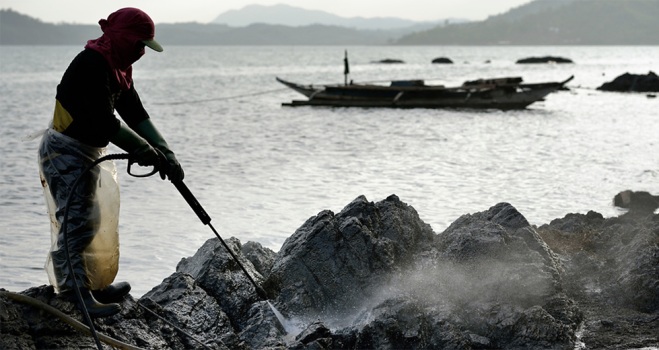A gathering of theologians, church leaders, and activists deepened the understanding of the interconnections between economics, ecology, and theology as part of the World Communion of Reformed Churches’ (WCRC) Decade for Climate Justice—noting that the starting point must be with “those who are left out and those who are being crucified,” including Indigenous people and non-human creation.
“Amid this devastating [environmental] crisis, we recognize that there is also an opportunity for the churches to engage in God’s mission to witness our faith. At the same time, there is a call for the Church to revisit our faith and practices to get into a covenant weaving the web of God’s life,” noted the introduction to a statement on “Faith, Economy, Ecology” produced by the participants.
“We need to build our capacity, partnering with theological institutions, social justice movements, and organizations, dialogue with scientists and grassroots leaders of Black and Indigenous peoples, women, small farmers, and the youth and others. Their voices will lead us to the systemic solutions necessary to avoid a climate and humanitarian catastrophe. They know the structures that oppress, destroy the system of life, and the changes that can make a positive impact on people’s lives and the Earth,” concluded the statement. “The gifts of the Spirit present in the Church today more than ever have a role to play in the healing of Creation.”
“The earth and the oceans are relentlessly mined, and forests are logged while the resultant pollution is released into the air, the oceans, the rivers, and the land. The ideologies of consumerism have legitimized this endless loop into the only way of being, participation, and meaning. We are literally consuming ourselves and the rest of the planet to death!” said Philip Vinod Peacock, WCRC executive secretary for justice and witness, in an address at the consultation.
“We might be aware that wealthy nations and sectors are mainly responsible for historical green house gas emissions. But it is important to note that the wealthy contribute disproportionately to the climate crisis not only through their high-consumption lifestyles but also and especially as investors and wealth holders who own, control, shape, and financially profit from carbon-intensive production processes,” said Athena Peralta, programme executive for economic and ecological justice for the World Council of Churches.
In 2022, the WCRC Executive Committee declared a Decade for Climate Justice. A planning committee drew up a programme for the first five years under the theme, “Learning from the Earth: Witnessing to Climate Justice.” The consultation worked to provide for the theological and ideological underpinnings of the decade and to provide directions for the future.

“Religion, economy, and ecology are interwoven aspects of the production and reproduction of life. Every economic system brings a theological or religious understanding of human beings and society. The same can be said about ecology. Then, deepening the mutually critical correlation between economic models and their impact on human subjectivity and spirituality is necessary,” noted the statement.
“In this time of grave emergency, Christian churches are called to imagine a new economy that privileges the life of the whole household based on a theology of enough. A theology of enough compels us to reconceive practices of household economics from the perspective of the most vulnerable within the household instead of the lord, thereby subverting colonial and patriarchal practices. This would ensure the integrity of the whole household will be sustained now and into the future. In the context of climate change this means just transitions to renewable energy, calling to account the insatiable greed of the economy of the Capitalocene, recognizing, confessing, and owning our complicity within the web of structural sin and accompanying with love communities who are already experiencing the grim reality of leaving and losing home,” said the statement.
The consultation was held in Depok, Indonesia, 19-21 October 2023.
The justice work of the WCRC is supported by funding from the Council for World Mission and Otto per Mille.
Photo: Cleaning oil from seaside rocks (Life on Earth/Paul Jeffrey).


